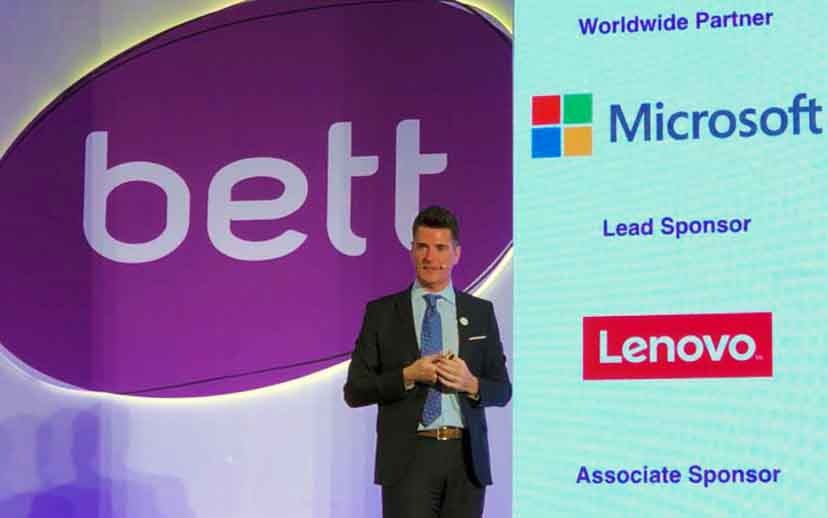advertisement
Today’s learning demands improved skill-sets
Modern day learning demands deliberate dramatic transformation in the way education is continuously applied to nurture change and sustain knowledge…

Modern day learning demands deliberate dramatic transformation in the way education is continuously applied to nurture change and sustain knowledge and the shift required in applying skills and attitudes of those involved to create and harness improved communities said Anthony Salcito, Vice President of Worldwide Education at Microsoft, in his keynote address at Bett MEA Conference and Expo in Abu Dhabi.
At the two-day event that formerly commenced today, Salcito noted that educational reforms involve many aspects like human resources, teaching methods, finance and the need to squarely address lost potential.
While noting how learning has transformed in today’s era and so has the modern workplace; Salcito highlighted the importance of driving change in teaching and learning models, thus preparing students for the future workforce.
advertisement

In his address he shed light on the recent Mckinsey “Class of 2030” report that reveals how students want to develop the skills to navigate their own learning, and the need for personalization versus automation. Furthermore, he also talked about the role of cutting-edge technologies such as Artificial intelligence, Mixed Reality and Quantum computing, and how they contribute to transforming teaching and learning in increasingly innovative ways.
“This is a region of ambition and innovation, and we need to ensure that future economies are imbued with a confident, pragmatic and problem-oriented workforce, so that national economic visions can succeed. But, as the survey shows, we all need to collaborate on the challenges of delivering on that promise, by recognising the changing role of technology in the classroom and developing strategies for digital transformation that are student- and teacher-centric.”
Anthony Salcito, Vice President of Worldwide Education, Microsoft
“It is a great pleasure to be returning to BETT Middle East, where we can participate in vital conversations with policymakers about how to improve the classroom for the modern student,” said Salcito. “This is a region of ambition and innovation, and we need to ensure that future economies are imbued with a confident, pragmatic and problem-oriented workforce, so that national economic visions can succeed. But, as the survey shows, we all need to collaborate on the challenges of delivering on that promise, by recognising the changing role of technology in the classroom and developing strategies for digital transformation that are student- and teacher-centric.”
advertisement
McKinsey’s “Class of 2030” report – encompassing input from 2,000 students, 2,000 teachers and 70 thought leaders worldwide – revealed that children starting school now would be better prepared for the post-Fourth Industrial Revolution workplace if they were endowed with social and emotional skills. Only 42 percent of employers believe that today’s graduates are adequately equipped with those attributes.
The study showed that up to 40percent of jobs in growth industries required soft skills and that emotional and social attributes were twice as predictive of a student’s academic results as home environment and demographics.
More than 98 percent of students expressed a desire for more personalisation in the classroom, as opposed to automation, revealing a need for teachers’ time to be freed up. Teachers, on average, said the right technology in the classroom gave them 30 percent of their time back, allowing them to deliver more student-centric education.
advertisement
“Two in three of the children who are just now starting school will find themselves in jobs that don’t exist yet, per a recent WEF estimate, so we need to rise to that challenge, because it is the responsibility of our generation to prepare the next for the post-Fourth Industrial Revolution workplace. Digital transformation plays a central role in that, to be sure, but Microsoft believes that educational institutes must lead the way in delivering soft-skills training and collaborative, student-centric learning experiences,” added Salcito.
Sonal Ghelani, Event Director Bett Middle East & Africa said “The UAE has always taken pride in delivering inspirational educational curricula that are centred around excellence, innovation and progression. Bett underpins the nation’s ambitious vision to become the leading education destination in the world, as outlined in the UAE Centennial Plan 2071.”